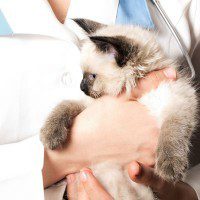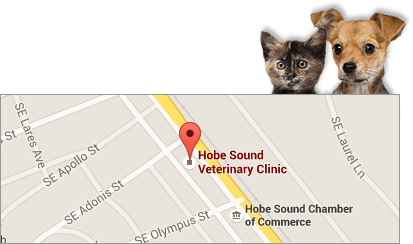As you may have noticed, cats are very, very good at getting comfortable. However, while Fluffy can certainly manage to sleep in some very awkward positions, she isn’t quite as good at cooling herself off. In fact, hot weather can be very dangerous to our feline buddies! Fluffy has a fur coat on, and really doesn’t have any effective ways to cool herself down if she overheats. This vulnerability to extreme weather conditions underscores the importance of being prepared for various emergencies. For more comprehensive information on keeping your pets safe in various situations, you might find our guide on Disaster Preparation Tips for Pet Owners helpful. Now, let’s focus on the specific signs of heat exhaustion in cats.
Restlessness
One early sign of overheating in kitties is restlessness. If Fluffy is pacing, or keeps moving from spot to spot, she may be getting too hot.
Panting
Panting is definitely a sign that your furry pal is uncomfortably hot. Panting doesn’t cool cats off the way it does dogs, so kitties rarely pant unless they are overheating.
Sweaty Paws
Did you know that cats only sweat through their paw pads? If your kitty’s paws are sweaty, she may be dangerously hot.
Drooling
Drooling is another red flag to watch for. Most cats don’t drool much, if at all, unless they are too hot.
Excessive Grooming
Another thing Fluffy may do to try and cool herself off is groom herself excessively. If your furry buddy seems to be obsessively grooming herself on a hot day, she may be overheating.
Stumbling
Cats with heat exhaustion often lose their coordination. Fluffy may stumble or stagger as she walks.
Shallow Breathing
Shallow breathing is another red flag, and is definitely something to take very seriously.
Lethargy
We know, cats love doing as little as possible. However, if your feline pal seems lethargic, she may be sick from the heat.
Unusual Vocalizations
Cats are all unique, and some have some very unusual voices. What you want to watch for are vocalizations that are abnormal for your pet. If Fluffy is meowing more or less than usual, or if her voice sounds raspy or cracked, the heat may be too much for her.
If you see any of these symptoms in your kitty, take immediate steps to cool Fluffy off. You can give her some water, wrap her in a cool towel, or hold her in front of an open freezer. Call your vet for further instructions as you are doing this.
Our Advice on Signs of Heat Exhaustion in Cats in 2024
How does humidity affect a cat’s ability to tolerate heat?
Humidity significantly impacts a cat’s ability to tolerate heat by reducing the efficiency of their limited cooling mechanisms. Cats primarily cool down through sweating from their paw pads and grooming, which relies on the evaporation of saliva. High humidity levels slow this evaporation process, making it harder for cats to dissipate heat. This can quickly lead to overheating and heat exhaustion. Ensuring a cool, dry environment and providing plenty of fresh water are essential steps in helping cats manage heat and humidity more effectively.
How quickly can heat exhaustion progress to heat stroke in cats?
Heat exhaustion can progress to heat stroke in cats very quickly, often within a matter of minutes to hours, especially in extreme conditions. Cats have limited ways to cool themselves, making them vulnerable to rapid overheating. Early signs such as restlessness and panting can swiftly escalate to severe symptoms like staggering, drooling, and shallow breathing. Immediate action to cool the cat and seek veterinary care is crucial to prevent irreversible damage or fatality. Ensuring a cool environment and preventing strenuous activity during hot weather are key preventive measures.
How does a cat’s age affect its susceptibility to heat exhaustion?
A cat’s age significantly affects its susceptibility to heat exhaustion. Kittens and senior cats are more vulnerable due to their less efficient thermoregulation. Young kittens haven’t fully developed their ability to regulate body temperature, making them prone to overheating. Older cats, on the other hand, often have underlying health issues or reduced metabolic efficiency, impairing their ability to cope with heat. Both age groups require extra care during hot weather, including ensuring a cool environment, providing ample fresh water, and monitoring for early signs of heat stress.
What role does hydration play in preventing heat exhaustion, and how can owners encourage their cats to drink more water in hot weather?
Hydration is crucial in preventing heat exhaustion, as it helps regulate body temperature and supports overall physiological functions. To encourage cats to drink more water in hot weather, owners can provide multiple water sources around the house and use pet fountains, which many cats find appealing. Adding ice cubes to water bowls can also make drinking more enticing. Offering wet food increases fluid intake, and flavoring water with a bit of tuna juice or chicken broth can tempt cats to drink more. Regularly refreshing water sources ensures they remain appealing and cool.
How does a cat’s activity level during hot weather impact its risk of heat exhaustion?
A cat’s activity level during hot weather significantly impacts its risk of heat exhaustion. High activity levels increase body temperature, making it harder for cats to cool down, especially since they have limited sweat glands. Active cats in hot conditions are more prone to overheating and heat exhaustion. To mitigate this risk, encourage rest during peak heat hours and provide a cool environment with shaded areas and ventilation. Monitoring and limiting strenuous activities, along with ensuring access to fresh water, can help manage their temperature and reduce the risk of heat-related stress.
Please contact us, your pet hospital in Hobe Sound, FL, with any questions about cat care. We’re here to help! Regular check-ups can help ensure your cat is healthy and better able to cope with environmental stresses. Consider our Veterinary Wellness & Pet Vaccinations service to keep your feline friend in top condition year-round.




